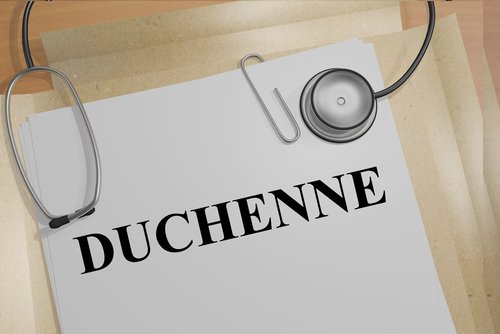CAP-1002 Positive Results Support New Clinical Trial

Positive results from the HOPE-Duchenne clinical trial support further clinical development of Capricor Therapeutics’ therapy candidate CAP-1002 for treatment of cardiac anomalies caused by Duchenne Muscular Dystrophy (DMD).
The company expects to start enrolling patients for a placebo-controlled clinical trial of intravenous CAP-1002 in DMD in the second half of 2017. CAP-1002 is a cardiac cell therapy that uses cardiac cells collected from healthy donors. The healthy cells are directly administered to patients’ coronary artery to promote recovery of the diseased cardiac tissue.
“Following our report in late April of positive results from our ongoing HOPE-Duchenne clinical trial of CAP-1002, we look forward to meeting with the [Food and Drug Administration] FDA to propose a potential registrational strategy and clinical development plan for the Duchenne muscular dystrophy indication,” Linda Marbán, president and CEO of Capricor, said in a press release.
Dr. Francesco Muntoni, Professor of Pediatric Neurology at University College London, and Head of the Dubowitz Neuromuscular Centre at Great Ormond Street Hospital, has agreed to serve as a key adviser for the upcoming trial, Dr. Marbán announced.
Preliminary results from the Phase 1/2 HOPE study (NCT02485938) in boys and young men with DMD revealed that patients who received the cell therapy showed clinically relevant cardiac tissue remodeling with improvements of upper limb function response, compared to control patients who received usual care. The treatment was generally found to be safe and well tolerated during the initial six months of follow-up.
Capricor expects to report 12-month data from HOPE-Duchenne trial in the fourth quarter of 2017.
Recent results from the ALLSTAR trial (NCT01458405), which tracks the use of CAP-1002 in patients who have experienced a large heart attack, showed disappointing results, as the primary efficacy endpoint was not reached. However, the cell therapy still demonstrated to have biological activity in the recovery of cardiac tissue.
In light of this, the company announced that it will focus its financial resources mostly on its DMD program.
“The observed reductions in left ventricular volume measures in the CAP-1002 treated patients, an important indicator of reverse remodeling of the heart, support the biological activity of CAP-1002,” Dr. Marbán said.
“Although we are disappointed, the favorable safety profile demonstrated by CAP-1002 in ALLSTAR supports the prospect of its chronic, repeat administration in patients with Duchenne muscular dystrophy. Also, the potent anti-inflammatory properties of CAP-1002 may be well-suited to mitigate DMD progression, for which chronic inflammation is believed to play a causative role,” she added.
Supported by the positive six-month results from HOPE, the company is going to file an application for Breakthrough Therapy or Regenerative Medicine Advanced Technology (RMAT) designations. CAP-1002 has already received orphan drug designation by the FDA for the treatment of DMD.






